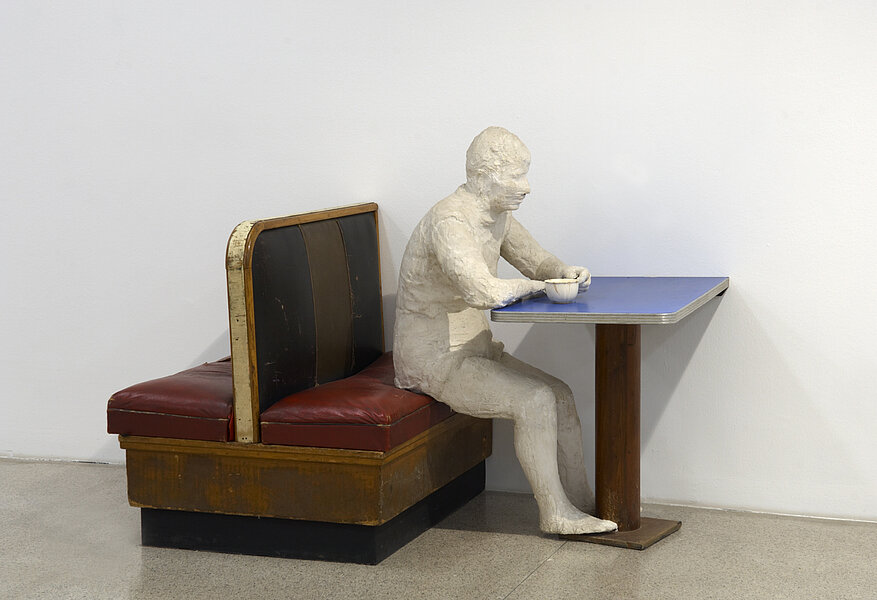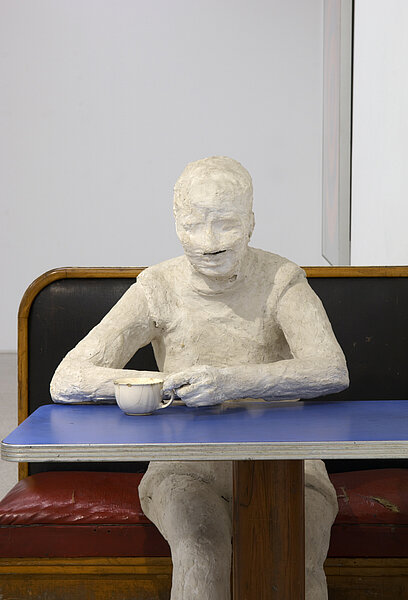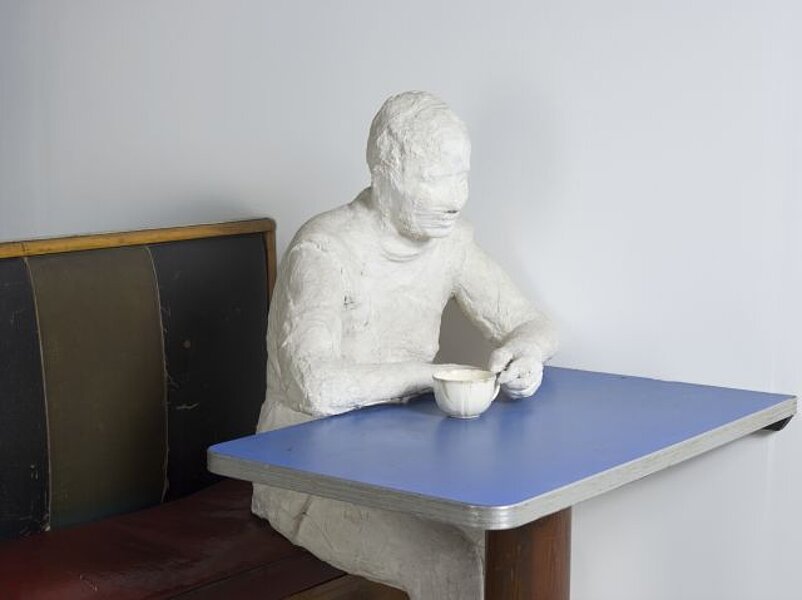
Segal, George
Woman in a Restaurant Booth
Woman in a Restaurant Booth
1961
| Object description | Table, bench, figure of plaster bandage, cup |
|---|---|
| Object category | sculpture |
| Dimensions |
Objektmaß:
height: 130 cm,
width: 175 cm,
depth: 110 cm
Cup:
height: 7 cm,
width: 13 cm,
depth: 10,5 cm
|
| Year of acquisition | 1978 |
| Inventory number | P 182/0 |
| Creditline | mumok - Museum moderner Kunst Stiftung Ludwig Wien, ehemals Sammlung Hahn, Köln |
| Rights reference | Bildrecht, Wien |
| Further information about the person | Segal, George [GND] |
| Literature |
Museum moderner Kunst Stiftung Ludwig Wien museum moderner kunst.SAMMLUNG HAHN I Love Pop. Europa-Usa anni '60. Mitologie del quotidiano Porträts. Aus der Sammlung Hyper Real |
The room installations of the sculptor George Segal, born in New York in 1924, have had a disturbing effect ever since they were first created in the early 1960ies. Segal has developed a method of body modeling with which he can make plastic casts of living models. He then combines these with objects from everyday life, like in this case a bench, a table, and a coffee cup. The whiteness of the figure stresses the impression that it has become petrified during its daily routine of sitting around in a fast food restaurant. The artist explains the relationship between model and figure as follows: “The look of these figures is as coincidental as it is planned. I usually know which emotional attitude the figure is supposed to assume when it is finished. I ask the model to stand or sit in a very specific way, but the model is still a human, full of secrets and an entity all by his- or herself. Despite my techniques certain bone structures as well as deeply enclosed features of behavior come to life from inside the model. Whoever has to sit still for an hour will sink into themselves. It is impossible for the person to conceal anything no matter which posture he or she takes. “Woman in a Restaurant Booth” clearly conveys the melancholic mood inherent in almost all of Segals works. The motive of the city dwellers lack of communication, their loneliness and isolation in an explicitly public environment in a modern world comes out over and over again.
© mumok – museum moderner kunst stiftung ludwig wien



